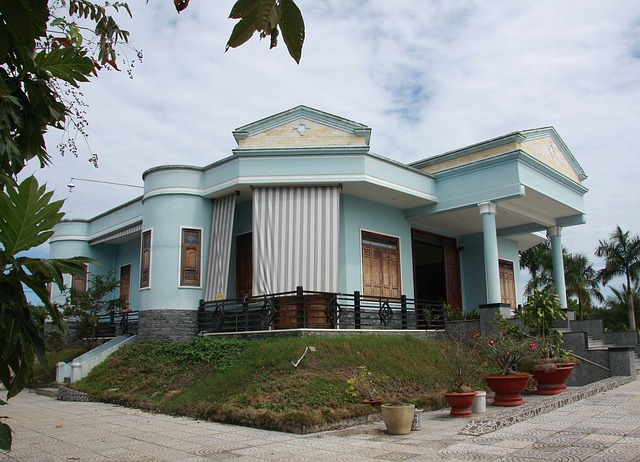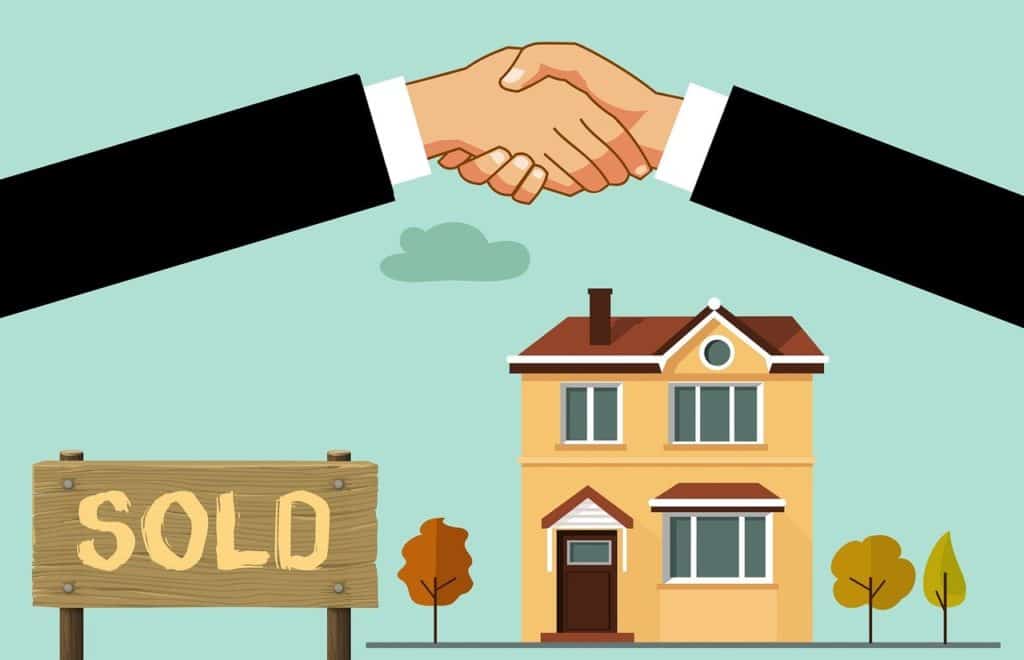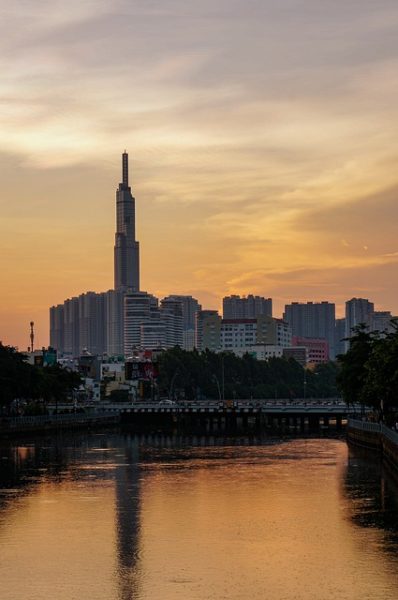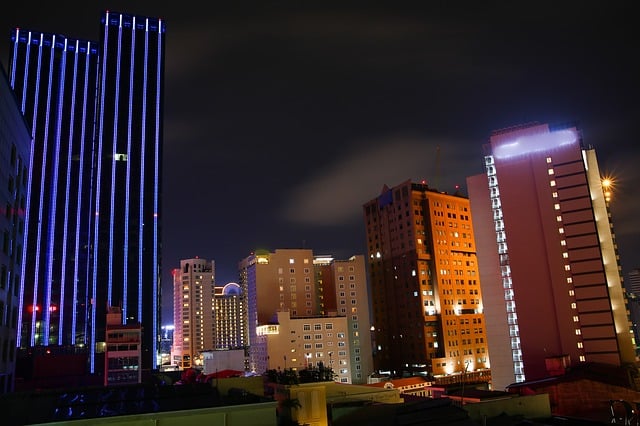Buying a house in Vietnam is a complex process for foreigners. This should come as no surprise to anyone who has ever purchased a property, even within their home country! From learning all the jargon to paying out huge sums of money and signing reams of official paperwork, property purchases are a chore wherever you are.
Vietnamese law has changed in recent years, seemingly making the buying process easier for foreigners. In reality though, not much has changed. Neither foreigners nor citizens are allowed to own land in the country – land can be leased, but is state-regulated.
In the simplest terms, foreigners can now own houses, but choice is limited and there are many legal considerations to be aware of before you decide whether investing is for you. Find everything you need to know about buying a house in Vietnam below.

Law Changes in 2015
When a new law was passed on 1 July 2015, suggesting that buying a house in Vietnam was now easier for foreigners and Viet Kieu, there was a flurry of excitement on many expat Facebook pages. However, as the dust settled, it became evident that the law was quite ‘grey’. Were things actually easier or were they basically just the same as before?
The answer: it is still quite grey.
In an article in Thanh Nien News,15 September, 2015, Nguyen Tri Hieu, a returned Viet Kieu who set up the first Vietnamese-owned bank in the US and is now a senior advisor to Vietnam Thuong Tin Commercial Bank (VietBank), stated: ‘Whilst the law was considered a great move by Vietnamese authorities, foreigners and Viet Kieu are still facing multiple difficulties in buying a house in Vietnam.’
In the same article Thanh Nien News’ Editor in Chief, Nguyen Quang Thong, summed it up: ‘A lack of subsequent legal documents clarifying relevant procedures means the law is yet to be implemented practically.’
What it means and the ‘real’ changes
Below is a list and clarification of the real changes in the law:
Individuals
- Foreigners can now buy apartments with just a valid 3 month visa and a valid passport
- Foreigners can now buy a flat, house or villa if it is part of a real estate project such as The Dunes Villa and Ocean Villas.
- For private houses, the law remains unchanged: a foreigner can’t buy a plot of land or a house in Hoi An that is not part of a development project.
- Foreign individuals and entities will only be allowed to buy, receive, or inherit apartments and houses in commercial projects and not in areas that limit or ban foreigners.
- Foreign individuals and entities are able to buy a maximum of 30 percent of apartments in a block and 250 houses in a given ward.
- Individual foreigners may extend their home ownership after 50 years, according to their need.
- Foreign property can be put out to lease for any ‘purposes that is not banned by law’ but must also inform the provincial house management agency before leasing the property.
- Foreign property owners will also be subject to the nation’s property taxes.
- Foreigners married to Vietnamese citizens can buy any property type.
Entities
All the previous information applies to individual buyers as well as foreign entities (investment funds, banks, Vietnamese branches and representative offices of overseas companies) with the following differences:
- Entities are not able to lease or use the property for purposes others than housing their employees.
- The duration of their land tenure is indicated in the investment certificate.

We see what we want to see
Many who saw the new law immediately zeroed in on one section: ‘Foreign individuals and entities are able to buy a maximum of 30 percent of apartments in a block and 250 houses in a given ward’. It seemed that buying any house (within a given ward) was suddenly straight forward and possible. Many overlooked the stipulation that all properties available for purchase had to be part of a commercial project.
Foreign individuals and entities will only be allowed to buy, receive, or inherit apartments and houses in commercial projects and not in areas that limit or ban foreigners.
This means that, unless you have a Vietnamese partner or friend to whom to sign the property over, you may not be able to buy the house that takes your fancy. However, with Hoi An development going at the speed of light, there are sure to be new developments closer to the city than those presently out in whoop whoop.
Payments
Sending money to Vietnam is relatively easy. You have many different options to proceed with the payment of your chosen property in Vietnam.
- Open an account in a local bank account, such as Vietinbank or Vietcombank.
- Transfer money directly from your home country to Vietnam through your bank’s Vietnam branch or partner companies.
- Transfer money (VND) directly to property seller.
However, getting money out of Vietnam is still a challenge for foreign home owners, who are expected to produce the necessary documents evidencing their source of income such as proof of income in Vietnam (if applicable), proof of inward remittances to Vietnam, a Sales & Purchase Agreement, etc.
So, in short, having a clear paper trail is imperative. If you buy the property overseas funds then the amount you bring in to the country via bank transfer will be easier to take out.

Warranty of property
According to the Housing Law of Vietnam, the warranty is usually 60 months for apartment buildings and 24 months for separate units. The warranty should include: repair of columns, frames, floors, beams, walls, roofs, ceiling, staircases, terraces, paving, panelled sections, fuel supply system, plastering, lighting and electricity supply system, water supply systems, sewage drainage, septic tanks and solutions to problems of property cracking, collapse and subsidence.
For other equipment attached to the house, such as an HVAC system, the lessee or the seller should provide warranty—including repair, maintenance and replacement—with the period of time recommended by the equipment’s manufacturer.
Renewal of ownership
If you wish to extend the ownership tenure, the procedure is as follows:
- Three months before the expiration of the tenure for house ownership, if the owner wishes to have the tenure extended, they must file an application for extension which specifies the extension length and includes a certified true copy of the certificate of the house, then send it to the People’s Committee of the province in which the house is located;
- Within 30 days from the receipt of the owner’s application, the People’s Committee of the province shall consider and issue a written permission for one extension of the ownership tenure at the request of the owner. Such extension must not exceed 50 years from the original expiration date written on the certificate.
- According to the written permission given by the People’s Committee of the province, the Certificate issuing body will write the extension on the Certificate, and send a copy of the Certificate to the Department of Construction of the same province for monitoring.

Taxes
The taxes involved in purchasing a house in Vietnam are the following:
Value Added Tax (VAT)
10% VAT is added on any sale of property by locals or foreigners.
Registration Tax for Ownership
0.5 registration tax for obtaining the house ownership certificate on the apartment value
Personal Income Tax (For resale)
If personal income is earned through the assignment or resale of apartments or houses a 2% personal income tax has to be paid on the transacted value.
Personal income Tax (For rental income)
If personal income is earned through rental of house/apartment, 5% VAT and 5% PIT has to be paid on revenue.
For rental income exceeding VND 1,500,000 per month, a business license tax of VND 1,000,000 (approx. $US 45) per year applies.
Administration Fee
A minimal administration fee is to be granted an ownership certificate at the current regulation.
Documents and certificates
The basic documents you need to secure when looking into buying a property in Vietnam are the following:
- Valid Passport and VISA
- SPA (Sales and Purchase Agreement)
- Title deed or registration of the ownership with government authority
- Pink Book
PINK BOOK
“Pink Books” are the primary title document for residential ownership in Vietnam. Foreigners are supposed to be able to obtain Pink Books for the residential properties they buy.
Charges
In order to secure a Pink Book, you need to pay a registration tax of 0.5% of the property’s sale price, and an administration fee for the issuance of Pink Book, which is around 3,000,000 VND (depending on the project).
Duration of application
The estimated duration of Pink Book application is around 18 months prior the handover date.
Required documents
The required documents for applying for a Pink Book are: passport (with valid visa), the Sale and Purchase Agreement (SPA) and marriage certificate (only if the purchaser is married to a Vietnamese citizen or if the foreign married couple have both of their names in the SPA).
It’s essential to ask in advance that you’ll be able to receive these.
By law, foreigners cannot own property in areas designated by the government to be important to national security. A sale might go through on such land, but if you’re unable to receive an ownership certificate then your legal status as owner of the property can get very complicated indeed. Don’t risk it! Make sure you can get the documents you need before you buy or agree to anything.

Mortgages
Mortgages services have never been very developed in Vietnam. However, even if it’s still quite complex, you’d able to get property loans more easily now from banks like OCB, HSBC and Standard Chartered.
If you are considering asking for a mortgage, check out this article about how to get a mortgage in Vietnam.
Tip: contact some local banks and see what they have to offer – what is their interest rate, amortization requirements and payback period?
Real estate agencies in Hoi An and Da Nang
Savills
CBRE
Hoi An House
Central Vietnam Realty (CVR)
Alongside turning to a reliable estate agent/developer, it’s recommendable to hire a property lawyer to assist you with the bureaucracy. It may be that your estate agent or developer themselves will involve a property lawyer where needed throughout the process.
All technical information gathered from:
https://www.asiapropertyhq.com/buy-property-vietnam/
http://www.propertylaunch.vn/frequently-asked-questions/
Good websites to read
Buying a Property in Vietnam as a Foreigner – the Ultimate Guide
Vietnam Insider: ‘It’s now a good time (for foreigners) to buy property in Vietnam’